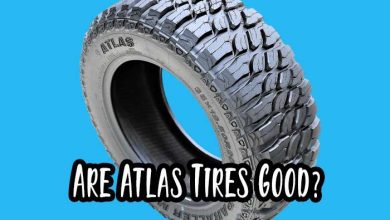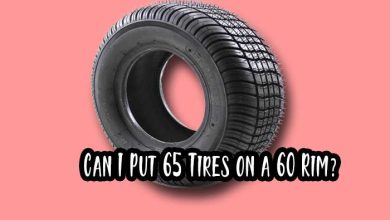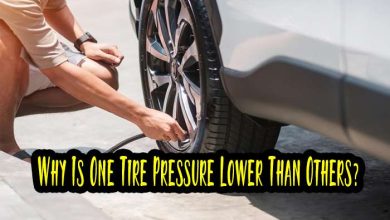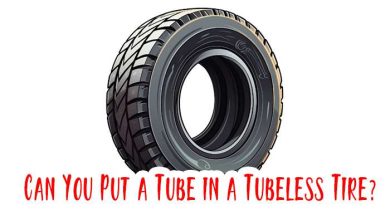Can I Put Different Size Tires on My Car? A Tire Expert’s Guide
If you’re a car enthusiast like me, you know the importance of tires and how they can impact your driving experience. But have you ever wondered, “Can I Put Different Size Tires on My Car?”
In this blog post, we’ll explore the tire and rim sizing world, discussing the advantages and disadvantages of using different tire sizes.
But before we dive into the details, let’s understand why the right tire size is crucial for your vehicle’s performance. Read More- Are Tire Certificates Worth It?
Yes, you can put different size tires on your car, but it is not recommended. The tire size and rim size must match, and the overall diameter of the tires should be within 3% of the stock tire size. Read more bellow.
The Right Tire Size for Your Car
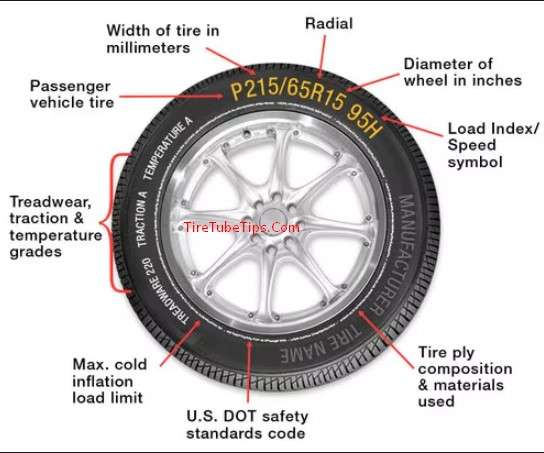
Your car’s tires are in contact with the road, and the right size is vital for optimal performance. When you put the correct size of tires on your vehicle, you ensure safety, stability, and better handling.
Tires that match your car’s specifications are engineered to balance traction, comfort, and fuel efficiency.
Using the right tire size can also enhance your car’s appearance, giving it a sleek and polished look. It’s essential to understand that tire size is not a one-size-fits-all concept.
Each vehicle has specific tire size recommendations, usually found in your owner’s manual or on a sticker inside the driver’s door.
However, sometimes, you might consider going against these recommendations and wonder, “Can I put different-sized tires on my car?” Let’s explore that further.
Read More: Can I Put Wider Tires on My Stock Rims?
Can I Put Different Size Tires on My Car?
Can I Put Different Size Tires on My Car? Technically, yes, you can put different-sized tires on your car. However, it is not recommended, and there are a number of potential problems that can arise.
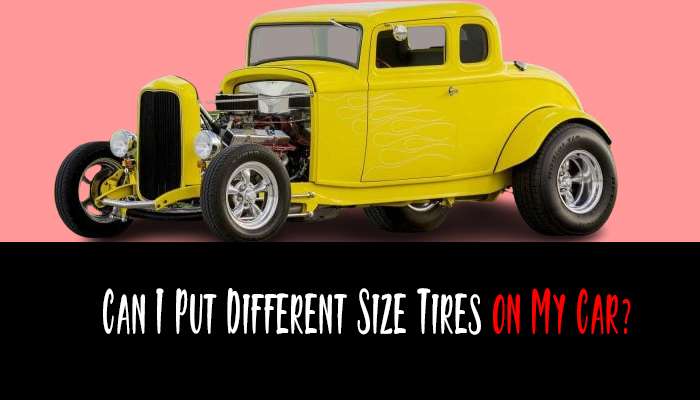
- Your speedometer will be inaccurate. This is because the diameter of your tires affects the distance that the odometer measures. If your car has different-sized tires, your speedometer will read that you are going faster than you actually are.
- Your vehicle’s handling may be affected. Different-sized tires can have different tread patterns and sidewall heights. This can change the way your car handles and brakes.
- Your vehicle’s braking performance may be compromised. This is because the anti-lock braking system (ABS) is calibrated for a specific tire size. If your car has different size tires, the ABS may not work as effectively.
- Your vehicle’s suspension may wear out prematurely. This is because different-sized tires can put uneven stress on the suspension.
It is especially important not to put different-sized tires on the front and back of your car. This can cause problems with the vehicle’s center differential, damaging the drivetrain.
If you are considering putting different-sized tires on your car, it is important to consult a qualified mechanic to ensure it is safe.
Advantages of Using Different Tire Sizes
You might be tempted to use different-sized tires for various reasons. Here are some advantages:
1. Enhanced Aesthetics
Different size tires can give your car a unique and stylish look. For example, a larger set of tires can provide a rugged appearance, perfect for off-road enthusiasts, while smaller tires can create a sportier look.
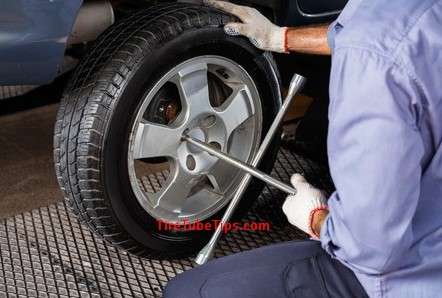
2. Improved Traction
In some situations, such as winter driving, using smaller tires on your vehicle’s rear axle can enhance traction and stability.
This can be particularly helpful if you live in an area with harsh weather conditions.
3. Customized Performance
Using different-sized tires allows you to tailor your car’s performance to your preferences.
Depending on your tire choices, you can achieve a more aggressive grip on the road or a smoother and quieter ride.
Disadvantages of Using Different Tire Sizes
While there are advantages, it’s essential to consider the potential drawbacks:
1. Handling and Safety Concerns
Using different-sized tires can impact your car’s handling and safety. It can lead to instability, especially during high-speed maneuvers.
The varying tire sizes can also affect your car’s braking system and increase the risk of accidents.
2. Speedometer and Odometer Accuracy
Different size tires can affect the accuracy of your car’s speedometer and odometer. Your speedometer may indicate a speed slower or faster than your actual speed, leading to traffic violations or issues with your vehicle’s maintenance schedule.
3. Mechanical Stress
Variations in tire sizes can create mechanical stress on your car’s drivetrain components. This can lead to premature wear and tear, potentially resulting in costly repairs.
Legal and Safety Considerations of Using Different Tire Sizes
Now, let’s talk about the legal and safety aspects of using different tire sizes. Safety should always be a top priority when it comes to your vehicle.
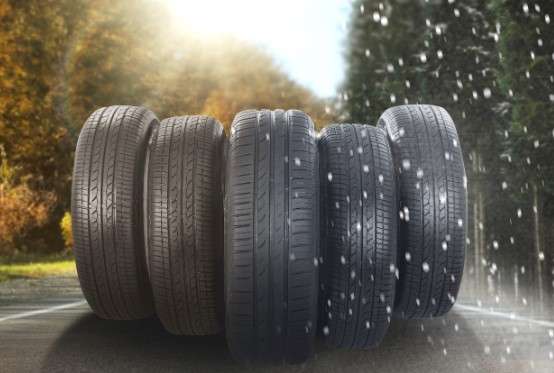
1. Legal Implications
Using tire sizes significantly different from the manufacturer’s recommendations can be illegal in some regions. You must check your local laws and regulations to avoid any potential fines or legal troubles.
2. Safety Concerns
Safety is paramount when it comes to driving. Different tire sizes can affect your car’s handling, braking, and overall stability. It’s crucial to consult with experts to ensure that any changes you make won’t compromise your safety on the road.
3. Warranty Considerations
If your car is still under warranty, using non-standard tire sizes might void certain parts of your warranty coverage. Be sure to check with your manufacturer or dealership before making any changes. Read also- Can I Put 65 Tires on a 60 Rim?
Frequently Asked Questions (FAQs)
What happens if I use smaller tires than recommended?
Using smaller tires than recommended can lead to several issues. Your car’s handling and stability can be compromised, especially during high-speed driving. It can also result in lower ground clearance, making your car susceptible to road debris or uneven terrain damage. Additionally, smaller tires can negatively affect your car’s fuel efficiency and acceleration.
Can I use different-sized tires on the front and rear axles?
While it’s possible to use different-sized tires on the front and rear axles, it’s generally not recommended. Mismatched tires can lead to uneven wear, affecting your car’s performance and handling. If you want different-sized tires on the front and rear, consult a professional mechanic to ensure it’s done correctly.
How do different tire sizes affect my car’s suspension?
Using different tire sizes can alter your car’s suspension dynamics. It can lead to uneven weight distribution and affect your car’s ride quality. If you decide to use different-sized tires, it’s crucial to have your suspension system inspected and possibly adjusted to maintain a comfortable and safe driving experience.
How much difference in tire size is acceptable?
The acceptable difference in tire size depends on your car’s specifications and the recommendations provided by the manufacturer. In most cases, sticking with the recommended tire size is best to ensure safety and optimal performance. If you’re considering a change, consult a tire expert or your car’s manufacturer to determine your vehicle’s acceptable range.
Conclusion
Choosing the right size is crucial for your car’s safety and performance in the world of tires and rims.
While there are some advantages to using different tire sizes, it’s essential to consider the potential disadvantages and the legal and safety implications.
Ultimately, the decision to put different-sized tires on your car should be made carefully, considering your specific needs and the guidance of experts.
Source
https://www.tirebuyer.com/education/understanding-tire-sizes-and-type
